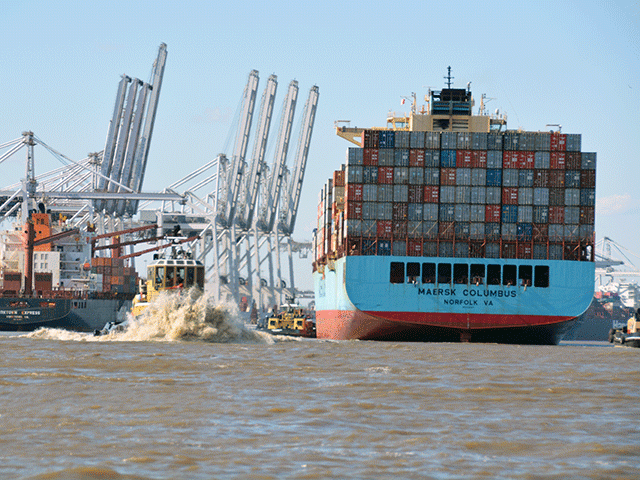Secretaries Demand Shipper Action
Vilsack, Buttigieg Demand Ocean Carriers Treat US Ag Exports Fairly at West Coast Ports
OMAHA (DTN) -- A pair of Cabinet secretaries have written to the world's largest ocean carriers to demand they treat U.S. agricultural exports fairly at West Coast ports and "restore reciprocal treatment of imports and exports that is inherent in trade."
Agriculture Secretary Tom Vilsack and Transportation Secretary Pete Buttigieg wrote the presidents and executives of a dozen major global shipping lines to relieve the supply chains and consider options of other ports beyond the Ports of Los Angeles and Long Beach, California. The secretaries cited the "unprecedented disruption to the flow of goods worldwide" and the need for both government and industry "to pull every lever and maximize the use of our existing infrastructure to relieve congestion and shipping disruptions."
"In the spirit of fully utilizing our current infrastructure, we're writing to emphasize the critical nature of service to underutilized West Coast ports to ensure American agricultural exports can be freely transported overseas," the secretaries wrote.
For more than a year now, global carriers have been delivering cargo containers to U.S. ports, then returning with empty containers rather than shipping agricultural goods back to Asia, especially China. The shippers maintain they get more money to deliver containers to Asian shippers that can be quickly flipped for exports back to the U.S. rather than having to deal with handling U.S. agricultural commodities.
Dairy exporters -- the National Milk Producers Federation (NMPF) and U.S. Dairy Export Council (USDEC) -- thanked the secretaries for the letter to "call out profiteering by foreign-owned carriers."
P[L1] D[0x0] M[300x250] OOP[F] ADUNIT[] T[]
NMPF and USDEC stated they had met repeatedly with USDA and Transportation officials, as well as the White House in recent months, "to urge greater administration focus on the shipping supply chain crisis's impact on agricultural exports."
The dairy groups stated that the supply chain problems have cost the dairy industry at least $1.3 billion over the first three quarters of 2021.
"Dairy exporters are enduring tremendous challenges in getting their high-quality products to customers in overseas markets, which puts our industry's reputation as a reliable supplier at risk. Our competitors in the European Union and Oceania are eager to swoop in and scoop up those sales," said Krysta Harden, president and CEO of USDEC.
"USDEC commends the administration's recognition that the current situation facing our dairy exporters cannot continue and strongly supports further steps by the Federal Maritime Commission and other administration entities to drive change swiftly."
Restoring reciprocal treatment of products is critical, the secretaries stated in their letter to the major ocean carriers.
"Shippers of U.S.-grown agricultural commodities and goods have seen reduced service, everchanging return dates, and unfair fees as containers have short-circuited the usual pathways and been rushed to be exported empty. This imbalance is not sustainable and contributes to the logjam of empty containers clogging ports," the secretaries stated.
The secretaries added, "The poor service and refusal to serve customers when the empty containers are clearly available is unacceptable and, if not resolved quickly, may require further examination and action by the Federal Maritime Commission."
Yet, after a year of complaints to the Federal Maritime Commission, the commission hasn't been aggressive in dealing with the issue of empty containers. The commission created an advisory committee in October. The House passed a bill last week, the Ocean Shipping Reform Act, that garnered wide bipartisan support, 364 to 60, that would give the commission more ability to pressure shippers into filling containers rather than loading empty ones at port.
The secretaries also highlighted that ocean carriers have suspended service to the Port of Oakland, which has caused agricultural exporters to truck their products to Los Angeles and Long Beach, which are already congested. Oakland, Portland, Oregon and other West Coast ports have excess capacity to relieve congestion, the secretaries noted.
Chris Clayton can be reached at Chris.Clayton@dtn.com
Follow him on Twitter @ChrisClaytonDTN
(c) Copyright 2021 DTN, LLC. All rights reserved.




